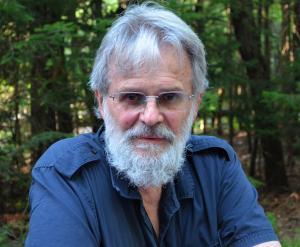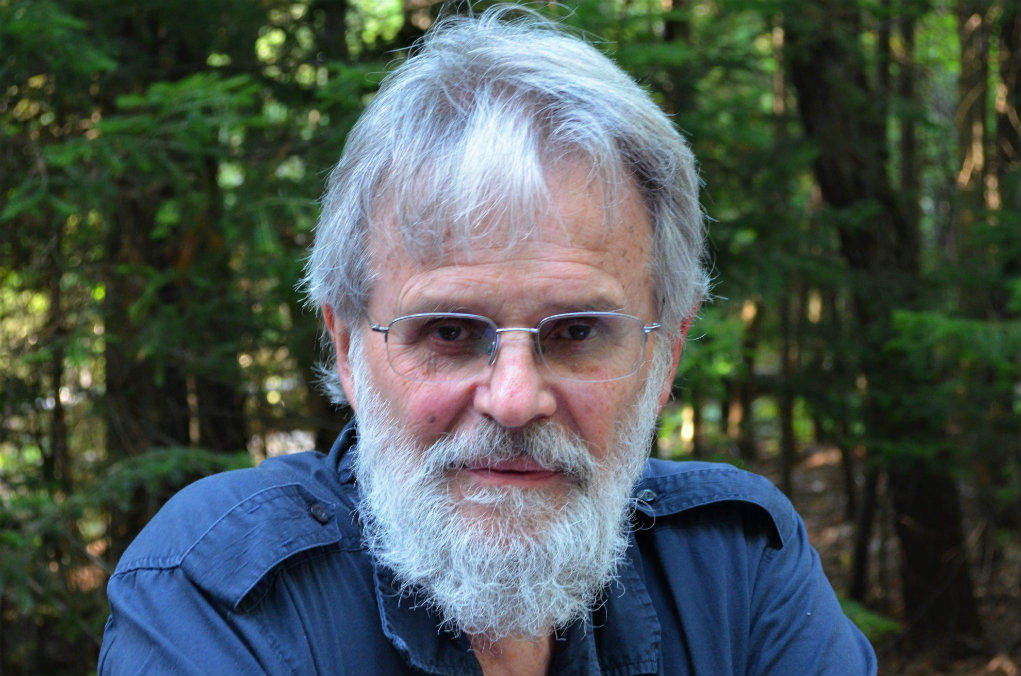
The first sentence of my fourth book, a musical memoir, was originally supposed to be: “I probably never would have become a music journalist if my life hadn’t depended on it.” I started writing about music in “Sounds from the World,” appearing in 1969 in the Army Reporter in Vietnam. The thought of writing a music column never entered my mind until I realized that if I could inform grunts in the field about the heaven of music in the year of Woodstock, it might give them hope to survive hell during their 365 in Nam.
Now, I’m thinking of changing my first sentence to “I never would have finished this memoir if my life and sanity didn’t depend on it.” An article in the New York Times Saturday March 21st Arts Section points out that Shakespeare wrote “King Lear,” “Macbeth,” and “Antony and Cleopatra” while quarantined from the plague. If that doesn’t spell out my marching orders, nothing does.
At first it didn’t occur to me that anybody would want to publish my self-help therapy writings I’ve been putting up on Facebook since the coronavirus pandemic was first defined, but when I approached Matt Marshall, J.D. Nash and Lauren Leadingham at American Blues Scene about it, they jumped on it. I shouldn’t have been surprised. In the field of blues journalism that often thinks so far inside the box that it takes a switchblade to open it, Matt and his crew are outstanding in their field — to quote a cliche.
We’re at the birth of a new world order RIGHT NOW! And these guys get it.
OK, enough ass kissing. I’m going to start offering you, The American Blues Scene reader, periodic examples of my self-therapy reactions to the world pandemic and other stuff that just might end up in my next book. I’m starting with my first examples that I put up on March 10 and Friday, the 13th.
3/10/20 Writing and Family Therapy
I’m almost embarrassed to be part of the news media today. I think the plethora of news sources is helping all of humanity go insane. I try to read between the lines, but come away thinking I need a new pair of glasses. I try to remember that the primary element of depression is thinking you’re never going to get away from what’s got you down, and then the media picks out stories that scream that the sky is falling and it’s getting worse, not better. My writing helps. My family helps.
3/13/20 Ascension or Obliteration
THE most destructive enemy of civilization is fear of the unknown. I have no better idea of what’s going to happen globally than anyone else. That said, my son David has had two New York Times best sellers (The Source Field and The Synchronicity Key) and made a career as a seer. One biographer is quoted as saying: “The Golden thread that weaves his work together is the science of Ascension – a solar-system-wide transformation that elevates earth and humanity to a higher phase of spiritual advancement.”
Are we on the verge of ascension? I have no idea, but here are a few observations on the last few days of what may be happening. First of all, I believe the coronavirus is way more prevalent already than we could imagine. And since a tiny portion of the world population has been tested, we’re seeing the tip of the iceberg. If in fact that’s true, there are probably already way more survivors than there are those who have died.
A dear friend and mentor pointed out to me this morning that more than 300,000 died from AIDS, but since those deaths were mostly confined to a minority, they didn’t get the same attention as this coronavirus epidemic is getting. Nor did it promulgate the kind of draconian counter measures we’re experiencing.
Someone else close to me says this is God telling us we messed up.
At the very least, I’m seeing people being nice to one another like never in my adult life. I’m seeing Democrats working with Republicans. Bottom line, this is the first time in my life I can remember that an emergency has impacted everyone alive in the same way.
I hope I’m right about all this. And if you think I’m crazy, or my son’s crazy, ask yourself if you or a friend or loved one has had an infection with the same symptoms as the coronavirus. Even if it isn’t God’s will and even if it’s not all about one single disease, it has been a wake-up call, and I for one appreciate those I love and like more than ever before. Nuff said?
3/13/20 Willie Wonka’s Wobble
In light of the run on toilet paper (sorry about the use of the word run), I’ve heard about several creative alternatives including rubbing one’s ass on the ground, and hosing down the affected area. But nary a mention of that old standby, the corn cob. The most unusual idea comes from the girlfriend of a buddy who said that ladies could use a hair dryer after urinating. I warned my buddy not to try that on his Willy. I have this image of him getting his member stuck in the business end of the dryer and doing the Grateful Dead dance around the toilet at warp speed.
*Don Wilcock Bio: Don Wilcock is an award-winning music journalist, advertising copywriter and former Publications Director for General Electric where he oversaw and/or edited seven magazines and newsletters that presented the company’s image both internally and to industrial customers globally. He founded the Northeast Blues Society presenting hundreds of artists in venues ranging from clubs to major outdoor arenas. He is a graduate of GE’s Advertising and Sales Promotion graduate level program and holds a degree in English literature with a minor in economics from Tufts University. He is a recipient of the Blues Foundation’s Keeping The Blues Alive in Print Journalism Award.
Wilcock wrote Buddy Guy’s authorized biography Damn Right I’ve Got The Blues, the 1993 life story of the blues legend that precipitated Guy’s seven-Grammy run, and his articles appear annually in the Blues Foundation’s Blues Music Awards’ commemorative program in Memphis. He is currently writing for Britain’s premier blues publication Blues Matters, The Blues Music Magazine, The Audiophile Voice, American Blues Scene, and New York Capital Region’s daily website Nippertown (for which he was nominated for Local Music Journalist of the Year at the First Annual Eddie Awards in 2019). Active in the south’s premier blues festival, King Biscuit, for more than two decades, Wilcock was editor of the King Biscuit Time Magazine, does publicity for the event, has hosted the festival’s annual Call and Response Blues Seminar for more than a decade and has interviewed scores of King Biscuit performers for the University of Arkansas Pryor Film Archives.
In 2019 alone Wilcock interviewed: Elvin Bishop, Joe Louis Walker, Albert Lee, Otis Taylor, Vanessa Collier, Guy Davis, John Hammond, Bruce Katz, Lucy Kaplansky, Thornetta Davis, Jim McCarty of The Yardbirds, Eric Gales, Delbert McClinton, Martin Barre, Edgar Winter, Taj Mahal, Ronnie Earl, Rory Block, Shemekia Copeland, Trudy Lynn, Jimmie Vaughan, Charlie Musselwhite, Paul Barrere, Jaimoe, Jim Weider, Vernon Reid, Colin James, Jimmy Webb, Tinsley Ellis, Lonnie Shields, Bill Nowlin (founder of Rounder Records) and Dennis McNally (The Grateful Dead historian).
He has lectured at the college, high school, middle school level and at festivals. In January, 2017 he hosted the keynote symposium “Blues as Healer” at the Blues Foundation’s International Blues Challenge on Beale St. in Memphis.
Wilcock was Junior Achievement President of the Year for one JA company and vice president of another in Pittsfield while in high school. He was the editorial cartoonist for the Tufts Weekly newspaper and co-founder of Eritas humor magazine on campus a half century before Bill Maher and Steven Colbert’s satire flew in the face of political correctness.
As an activated Army Reservist stationed at Army Headquarters in Long Binh, Vietnam, he wrote the weekly “Sounds from The World” column about underground music for grunts in the field in the then largest official Army newspaper in the world, The Army Reporter. At the same time, he edited the daily Morning World News Roundup for an audience of 35,000 in Long Binh.
In New York’s Capital Region he founded and edited Kite, an alternative arts weekly before the term was coined. For 44 years he was the music columnist for The Troy Record and in the early 21st century The Saratogian.
While holding down a day job as publications director for General Electric in the early ’80s, he continued his chronicle of rock, blues, folk, Americana and jazz for regional, national and international publications, and over more than half a century has logged in more than 6000 interviews with artists as diverse as Carlos Santana, James Brown, John Lee Hooker, Eric Clapton, and Jerry Garcia. He has edited several music magazines including the King Biscuit Time, Elmore, BluesPrint, BluesWax and FolkWax, and is currently contributing editor to The Blues Music Magazine.
In the 1990s and early 2000s, he was founder and president of the Northeast Blues Society which partnered with Fleet Bank and the State of New York in Albany, Mona Golub’s Second Wind Productions in Schenectady, and the Rensselaer County Council on the Arts in Troy to present festivals in each of the Tri-Cities. Headliners included Buddy Guy, Bo Diddley, Junior Wells, and The Holmes Brothers.
In the 1990s he hosted two back-to-back radio shows on commercial radio station WXLE-FM, one featuring interviews with personalities performing in New York’s Capital Region that week, and the other showcasing regional bands playing live in the studio.
Wilcock interviewed scores of artists and wrote all the copy for Helena Blues, photographer Bob Van Degna’s 2016 art book capturing the pulse of the 2015 King Biscuit Blues Festival. He is currently working on his fourth book, a memoir.
Interviewing musicians is a lifelong thread of continuity in a career Wilcock has built around seriously documenting the American experience, treating as art the common place phenomena that later become recognized as cultural treasures that put The United States in the vanguard as taste makers of the world.
He’s produced programs for the Am Jam Motorcycle Jamboree, the only such event that allowed the Hells Angels to wear their colors at their gathering and published two programs for the largest tattoo convention in the northeast featuring interviews with the vendor/artists. His Albany ComicCon program became a collector’s item 30 years before comic conventions garnered world attention as prescient purveyors of “the next big thing.”
Decades before American society recognized blues as the music that inspired the world’s pop music soundtrack, Wilcock was writing seriously about the genre, in England’s Blues World. At the time there was no American blues magazine. He currently writes for England’s most popular blues magazine, Blues Matters, and has had cover stories on Bobby Rush, Edgar Winter, and Kim Simmonds among others.
For more of Don’s articles for American Blues Scene, check here.
*Feature image by David Wilcock

